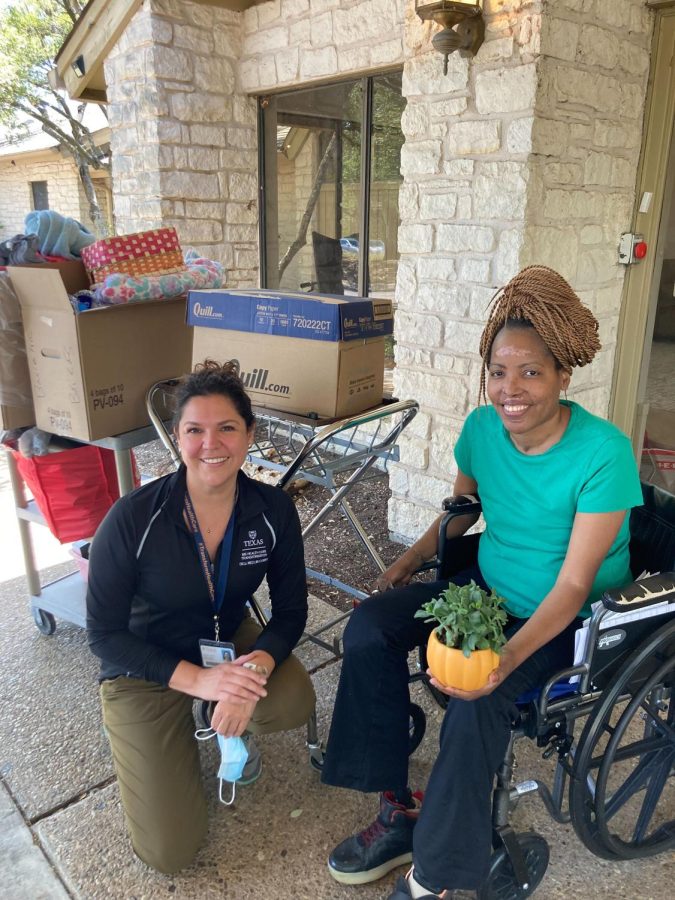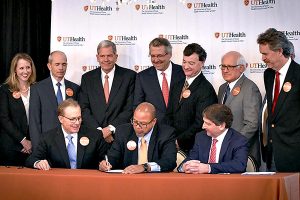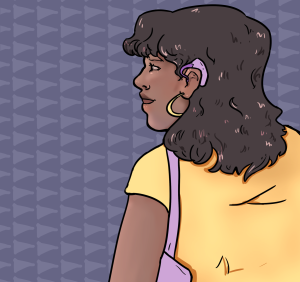UT medical worker transforms health care through personal journey
February 9, 2023
Brenda Garza hasn’t always worked in community health care at Dell Medical School.
Garza, a senior qualitative research coordinator, said she was diagnosed with stage 3 breast cancer at age 29 after visiting multiple doctors who dismissed her pain as normal for a healthy young woman.
“To me, something in my body and my heart told me this wasn’t enough,” Garza said.
Before her diagnosis, Garza said she had no interest in pursuing health care. Within three years, when her cancer returned, she said her longtime oncologist dismissed her pain, as well. She said she had to seek other specialists to re-diagnose herself.
Throughout this dismissal, Garza said she channeled her experiences into fighting for other patients to get proper attention from physicians.
“I continued to do all these programs about cancer prevention (in my journey), but then everything changed,” Garza said. “It was more about helping others to advocate for themselves, (and) it wasn’t anymore about only cancer.”
From Detroit to San Antonio and Austin, Garza implemented various support programs for cancer survivors. Becoming Dell Med’s first community health worker when COVID-19 hit, Garza utilized her firsthand experience with cancer, ongoing research and fluency in Spanish to provide basic health care to patients and ensure they received compassionate treatment.
“We started to create this community within the Latino patients who had COVID, we (created) a new culture within the hospital,” Garza said. “Suddenly, I was like the bridge between the patients and the health care system.”
W. Michael Brode, Garza’s clinical supervisor at Dell Med, said Garza has transformed their patient community, becoming an asset to their staff.
“The real magic is her communication skills,” Brode said. “She’s able to relate to patients, (which) is hard (for physicians because) there’s power dynamic. Brenda … (advocates) directly for the patient, trying to meet their health-related social needs.”
While simultaneously earning her master’s in health care transformation at UT and working, Garza said she realized the significance of her insights to health care.
“When I started my master’s degree, it was reassuring because everything that I did finally had a name, and institutions were interested in that,” Garza said. “Now I know it is a global movement about improving health care systems, and what I’ve been doing is at least one of the ways … that works.”
Garza said she also conducted qualitative research through conversations with patients about dismissive interactions they experienced with physicians. Clarissa Johnston, one of Garza’s research partners, said the two traveled to Mexico to learn how to approach hard conversations with critically ill patients. During their time abroad, Johnston said Garza served as a crucial link to effectively connect with patients.
“She has a unique perspective on what it’s like to be a patient and knowing the emotions and the stages that people go through, and also recognizing that it’s different for everybody,” Johnston said. “I also think it speaks to her generosity and skill level that she can share (her journey).”
Garza said her journey led her to make a difference in the lives of patients who experienced similar setbacks as she did years ago.
“The ones that benefit the most from my work are the community … and the health care providers,” Garza said. “They learn so much from their patients that the system just doesn’t allow them (to) … (and) now I understand why the doctors ignored me. It’s important to have these people in between the patients and providers, … and I know what is needed in the community.”














